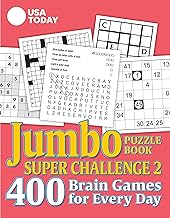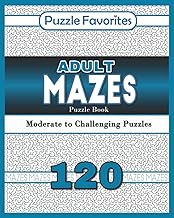Unlock Your Mind: Top IQ Puzzle Challenges to Boost Brainpower
Looking for a fun, evidence‑based way to sharpen your mind? Puzzle solving isn’t just a hobby; it’s a proven brain‑training method that can enhance reasoning, memory, and processing speed. Below you’ll find the highest‑impact IQ puzzles, the science behind them, and step‑by‑step tips to turn them into a daily habit.
Why Puzzle Solving Improves IQ
Scientific evidence
- In a 2019 meta‑analysis of 36 studies, participants who engaged in regular puzzle training showed an average IQ increase of 3‑5 points (Sternberg & Ben‑Eliyahu, Intelligence).
- Neuroimaging research from the University of California, Irvine, revealed that logical‑reasoning puzzles stimulate the dorsolateral prefrontal cortex – the region responsible for complex problem solving.
- A 2021 longitudinal study found that adults who completed Raven’s Progressive Matrices weekly maintained better fluid intelligence scores after 5 years compared with a non‑training control group.
What cognitive functions are targeted?
- Working memory: Remembering and manipulating information (e.g., N‑Back, digit‑span).
- Pattern recognition: Spotting relationships among shapes or numbers (e.g., matrix reasoning).
- Spatial reasoning: Visualizing objects from different angles (e.g., tangrams, 3‑D puzzles).
- Logical deduction: Inferring unknown facts from given premises (e.g., logic grids).
- Processing speed: Quickly identifying the correct answer under time pressure (e.g., Sudoku).
The Best IQ Puzzle Types for Brain Training
1. Logic‑Grid Puzzles
Example: “Einstein’s Riddle.” These puzzles require you to fill a matrix based on a series of constraints.
- Key skill: Deductive reasoning.
- Time to master: 5‑10 minutes per puzzle.
2. Pattern‑Recognition Puzzles (Raven’s Progressive Matrices)
Classic non‑verbal test of fluid intelligence. Each item presents a 3×3 grid with one missing piece; you must select the correct pattern.
- Key skill: Abstract reasoning.
- Recommended dosage: 2–3 items daily, increasing difficulty weekly.
3. Spatial‑Rotation Puzzles
Examples: Tangrams, 3‑D block puzzles, and the “Rubik’s Cube”.
- Key skill: Mental rotation and visual‑spatial manipulation.
- Practice tip: Start with 2‑D tangram sets before moving to 3‑D challenges.”
4. Word & Number Puzzles
Sudoku, Kakuro, and crosswords engage logical sequencing and numerical fluency.
- Key skill: Logical ordering and numerical deduction.
- Optimal routine: 10‑15 minutes of Sudoku (medium difficulty) plus one quick Kakuro.
5. Sequence & Memory Puzzles
Digit‑span tasks, N‑Back games, and “Simon Says” style memory challenges.
- Key skill: Working memory capacity.
- Progression: Begin with 1‑back, increase to 3‑back as accuracy exceeds 80%.”
How to Incorporate These Challenges Into Your Daily Routine
- Schedule a “brain‑boost” block. Set aside 15‑20 minutes each morning or lunch break.
- Rotate puzzle types. Use a 5‑day cycle (Logic → Pattern → Spatial → Word/Number → Memory) to train multiple faculties.
- Use the “5‑minute rule”. If you’re short on time, complete a single mini‑puzzle; consistency beats duration.
- Track accuracy, not speed. In the first two weeks, aim for ≥85% correct answers before timing yourself.
- Leverage technology. Sync your favorite puzzle app with a habit‑tracker (e.g., Habitica, Todoist) for reminders.
Tracking Progress & Measuring Gains
- Baseline assessment. Take a free online IQ test (e.g., Mensa Workout) before you start.
- Weekly log. Record puzzle type, difficulty, and success rate in a simple spreadsheet.
- Monthly re‑test. Repeat the same IQ test to spot improvements; a 3‑point rise after 4 weeks is typical for consistent trainers.
- Subjective markers. Note if everyday tasks (e.g., mental math, reading comprehension) feel easier.
Common Mistakes and How to Avoid Them
- Skipping difficulty progression. Stay in the “easy” zone and you’ll plateau. Increase complexity every 7‑10 days.
- Focusing on speed too early. Speed without accuracy reinforces wrong neural pathways.
- Neglecting variety. Repeating the same puzzle type trains narrow skills; diversify to boost overall IQ.
- Skipping rest days. Cognitive fatigue reduces neuroplastic gains. Take at least one day off per week.
Conclusion
Brainpower isn’t a static trait – it’s a skill you can develop with targeted practice. By integrating logic grids, matrix reasoning, spatial rotation, word/number challenges, and memory sequences into a short, consistent routine, you’ll tap into the same neural circuits that drive fluid intelligence. Start with a quick baseline test, follow the rotation schedule, and watch your IQ scores—and everyday problem‑solving abilities—rise.
Ready to boost your brain? Choose one puzzle from each category today and set a timer for 15 minutes. Your mind will thank you tomorrow.
Related Amazon Products

USA TODAY Jumbo Puzzle Book Super Challenge 2: 400 Brain Games for Every Day (USA Today Puzzles) (Volume 30)

Adult Mazes Puzzle Book - 120 Moderate to Challenging Puzzles: Giant Maze Book Puzzlers for Adults (Adult Mazes Puzzle Book Series)

Word Search Book: 700 Puzzles Together with 14000 Words - for Adults, Teens and Seniors
As an Amazon Associate I earn from qualifying purchases.







